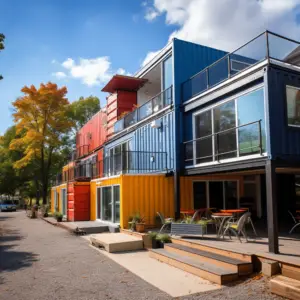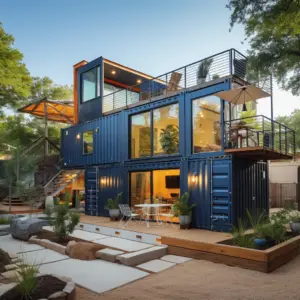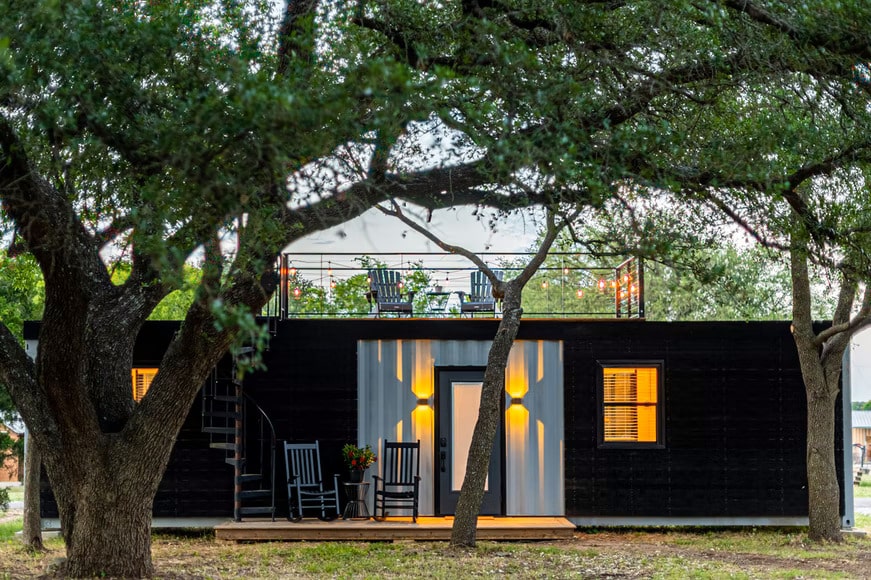Shipping container homes in Florida has become common in the current years. A large population is focusing on preserving the environment. It is an incredible idea to reuse readily available materials to build a container home. Additionally, you can entirely modify everything and make it your own, exciting.
It is legal to have owned a shipping container home in Florida. They are allowed and approved by the local government. However, you require a permit to construct it and follow the zoning laws and the home building codes to be okay with the authorities.
If you’re to build a container home in Florida, stick to the rules and zoning laws. This article will give you a write-down of the proper steps to follow to ease the process and make it seamless. Let’s jump right in.
Table of Contents
Permits For Shipping Container Homes in Florida: How to Apply

Florida State accepts shipping container homes, but you need a plumbing, electrical, and building permit. Therefore, you require 3 permits and not just a single license to start, although the essential one in the initial stages is the building one.
Remember that applying for a permit is easy but receiving one may take multiple months. To get the license, you should have a clear plan of the shipping container home type you would wish to build while adhering to the building codes and zoning regulations, then submit it to the Building Department for approval.
Upon approval of the building plan and have paid the necessary costs, you will be issued the building permit enabling you to proceed with constructing the shipping container on your land.
Permit-is official permission to do, use, own, and build a house. At this level, now you can contract any shipping container home builders to do the construction for you.
A Glance on Permits in Florida
A building permit indicates conformity with all building codes and approval to begin work. Some building codes govern house construction. A license is issued after all construction codes and other laws are met.
As a shipping container home owner, share your plans with local authorities and promote the community’s benefits, then validate that all building laws and other requirements were followed in the letter.
Make sure you meet all standards and follow the codes before getting a permit. R-5, R-7, and R-15 prohibit shipping containers.
Zonal Laws in Florida
Before any land purchase, it is essential to familiarize yourself with the zonal laws of the particular environment. It is vital to avoid being restricted from implementing your desired vision on that land because rules vary from one municipality to another.
Discover what the laws are and get to understand them fully. Here, you can involve a lawyer, architect, or contractor.
The Manufactured Home Construction and Safety Standards, also known as HUD, should supposedly guide the shipping container homes. The code applies to homes built in a factory.
It applies exclusively to shipping container homes with fixed chassis and material brought to the site. One must follow HUD guidelines.
The Florida planning agency divides and uses lands. They set agricultural, residential, and commercial goals and subdivided into R-1 through R-5 subdivisions. The smaller zone determines housing type. Shipping containers are banned in R-5, R-7, and R-15. Check your shipping container ownership status, focusing on R-2, R-1, or R.M.
R-1 is for single-unit residential buildings, and R-2 is for two-unit homes without duplexes or more than two apartments. R.M. governs various detached and attached residential units through several zoning laws. Rezoning allows homeowners to change their zoning and requires a lot of paperwork. Due to depreciation concerns, some may not like such agreements.
Zonal laws are important because they help you comprehend procedures and constraints.
Benefits of Container Homes

Shipping container in Florida and other states is lucrative and a viable solution to housing issues. In this section, we bring you the pros of shipping container homes. Take a look:
Cheap
They require fewer building materials and less labor, which means they are cost-friendly, unlike the traditional housing methods. They are constructed in a favorable climate, thus saving you many energy bills.
Fast to construct
Unlike traditional houses that take time to complete, it is direct and quick with containers. With a few materials, and enough labor, it can take two to -1month to complete. Even if the design is complex and takes time to complete, the duration it still takes is shorter than that of a conventional home.
Uniqueness/ customizable
The containers give you the freedom to craft unique designs as Florida’s houses have similar techniques as a unique design costs an arm.
Containers’ interlock ability for easy transportation is also used to achieve different configurations, layouts, and designs. Only your creativity can be your limit with shipping containers.
Durability
They are made of sturdy steel and resistant to harsh weather, making them last longer. It also offers safety because steel is of high-quality material and strong.
Mobility/portability
Have you considered a mobile home? Shipping container homes are intended for easy transit, making the notion possible.
The shipping container residences are transportable, so you can relocate them across states. A sustainable residence, especially for persons who move frequently.
They may be withdrawn and attached by an expert, making them easy to carry.
Florida shipping container home permit applications might be daunting. Its benefits outweigh its costs, but it will pay off. It may take weeks and cost money, but it’s worth it.Now that you know about shipping container homes, you can pick to buy a container home in Florida.
Happy building!


